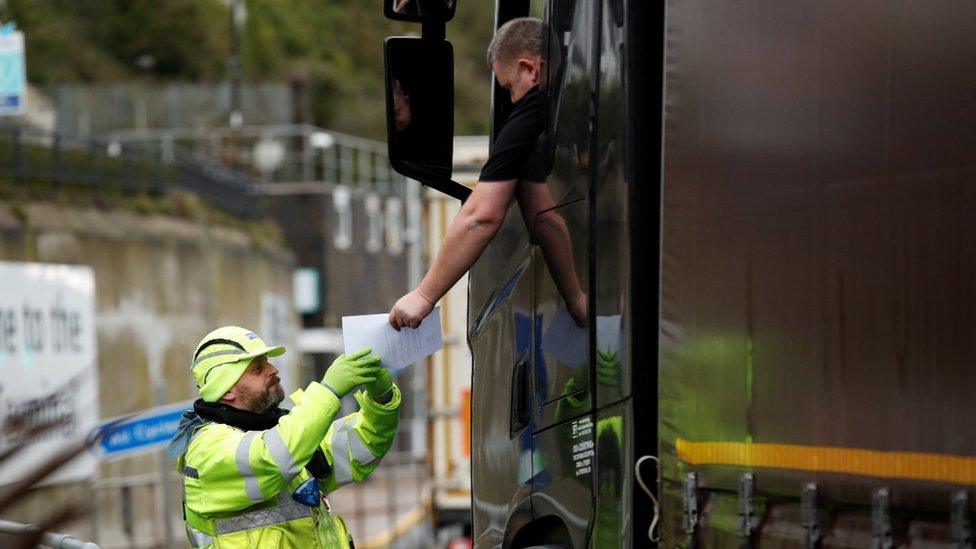Brexit: Welsh ports under threat from post-Brexit trade
- Published
- comments
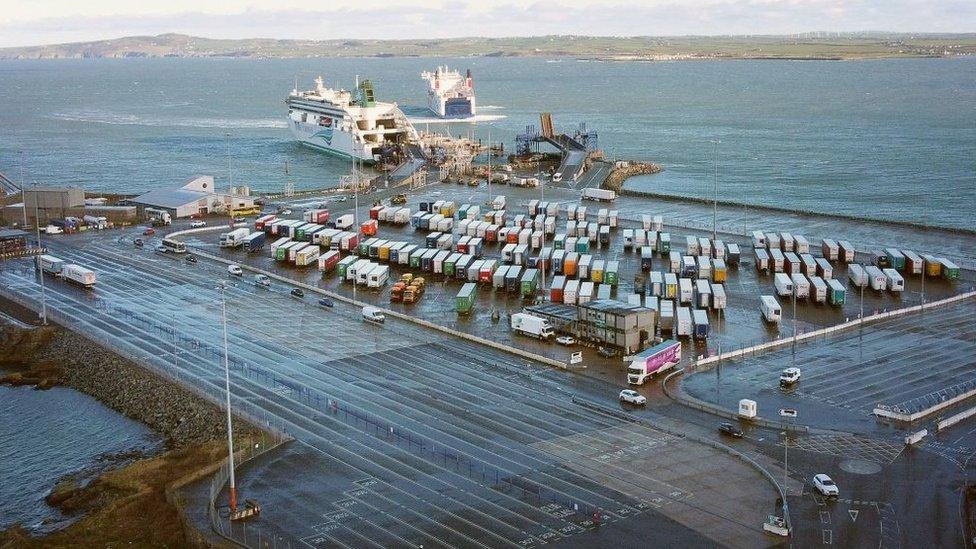
A Welsh government plan reveals a 50% relative decline in year-to-year volumes at Holyhead port
The Welsh government has warned that post-Brexit trading patterns threaten the viability of the country's Irish Sea ports.
Trade flows from Ireland to Welsh ports have collapsed since January.
Irish hauliers are avoiding the ports due to complicated new administration.
The Welsh government has published a plan, external aimed at simplifying those processes and encouraging the return of Irish freight.
It says: "The urgency of this work has become self-evident.
"Data for Welsh ferry ports volumes in February shows a relative decline of in 'year-to-date volumes' of 50% in Holyhead, and 40% in the south West."
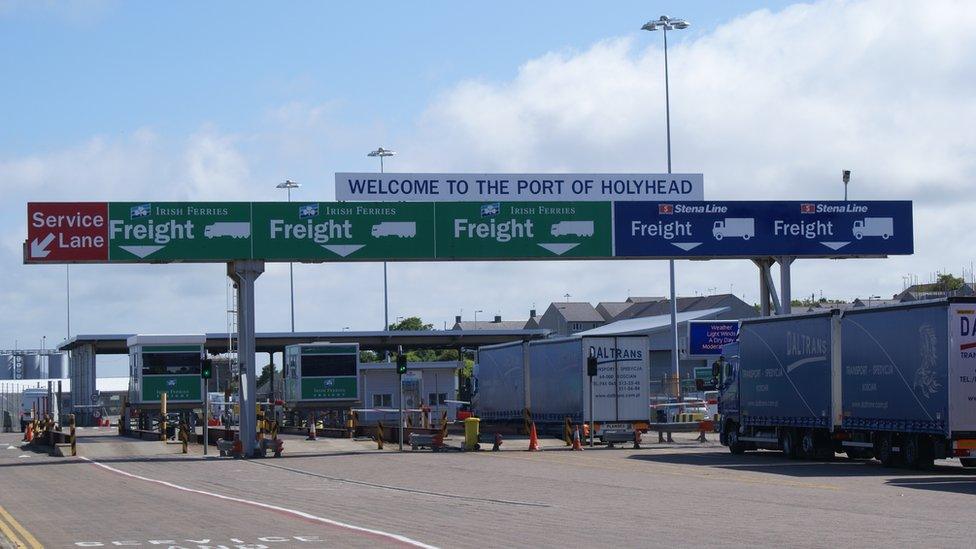
Many Irish freight trucks are bypassing Wales due to the new administration required
Brexit and the Irish Sea border have affected the ports in two main ways.
Firstly, Irish exporters are sending a lot more goods to the EU on new direct ferry services to France or Belgium.
Before Brexit, they would have accessed the continent by sending lorries from Dublin to Holyhead which would then drive to the English Channel and catch another ferry.
Many businesses are now avoiding that 'land bridge' route because of the new administration required and the fear it could lead to loads being delayed.
Secondly, some Northern Ireland businesses, which traditionally sent goods to England via Holyhead, are now making greater use of ferries to Cairnryan or Liverpool.
That is because goods going via Dublin are subject to some post-Brexit processes while direct NI-GB trade is unchanged.
'Rebuilding confidence'
The government report suggests five areas where practical improvements could be made within the constraints of the Brexit deal.
These include "rebuilding confidence in the UK land bridge".
It suggests that: "The UK and Irish Governments should work together to develop a bespoke resource or guidance pack that instructs traders specifically what will be required in order to use the land bridge, including how they will need to interact with each nations systems."
The report acknowledges that the Welsh government can do little on its own to improve the situation, but is committed to acting as "a catalyst" for co-operation between the UK and Irish governments.
It says that if nothing changes, in a worst case scenario, ferry companies could permanently cut services, "ultimately threatening the continued existence of those ports, the local employment associated with them, and future opportunities in and around those areas".
- Published4 March 2021
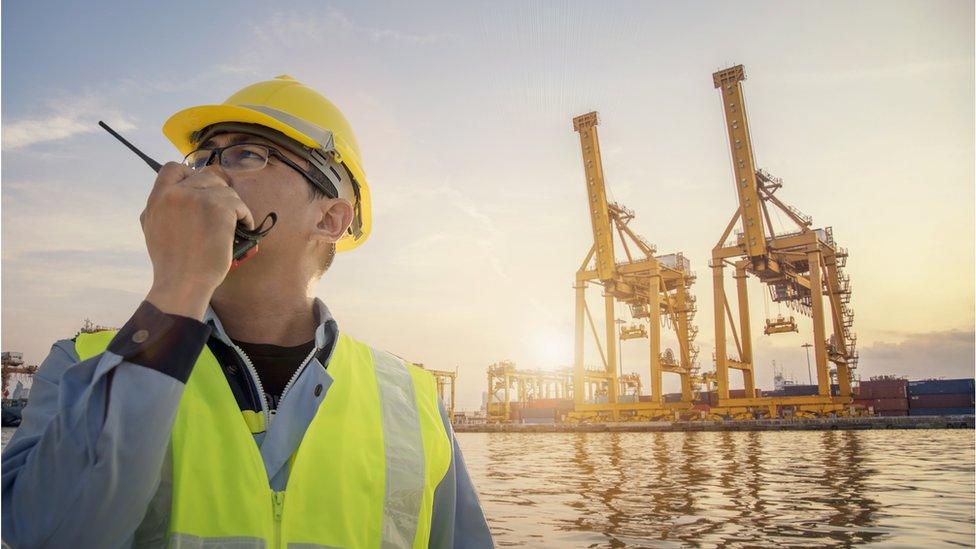
- Published8 February 2021
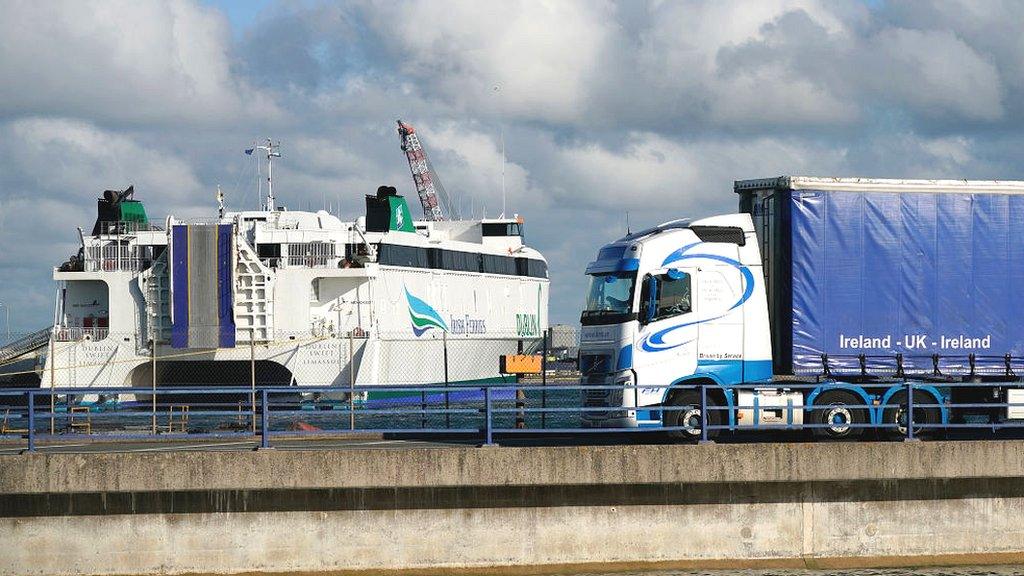
- Published16 January 2021
